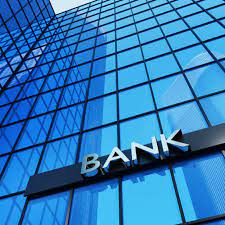Difernce Between Central Bank and Commercial Bank and The Definitions.
Commercial banks and central banks can be defined in terms of their
functions. According to Vera Smith, who stated that the primary definition of a
central bank is a banking system in which a single bank has either complete
control or a residuary monopoly of note issue bank has issue banks.
Also W.A Shaw defines a central bank as a bank that controls credit. TO
Hawtrey, a central bank is the lender of the last resort in a country.
According to Sayers, the central bank is the organ of government that
undertakes the major financial operations of the government and by its conduct
of these operations and by other means, influences the behavior of financial
institutions to support the economic policy of the government.
On the other hand, Commercial Banks can be defined as profit-making
institution that accepts deposits and advances loans to their customers.
The difference between commercial banks and central banks is so explicit
that a layman can understand it.
1. The central bank is the banker's bank. As such, it grants accommodations
to commercial banks in form of re-discount facilities, keeps their cash
reserves, and clears their balances, while the commercial banks advance loans
and accept deposits from the public.
2. The central bank is the apex institution for the monetary and banking
market structure of the country. While commercial banks are one of the money
markets.
3. The central bank is a banker to the government and does not engage itself
in ordinary banking activities. The commercial bank is a profit-making
institution.
4. The central bank has a monopoly on notes issues, while the commercial
bank can issue only cheques. The notes are legal tender. But the cheque are
like near money.
5. Every country has only one central bank with its offices at important Centre’s
of the country. On the other hand, there are many commercial banks with
hundreds of branches within and outside a country.
6. The chief executive of the central bank is designated as Governor, whereas the chief executive of a commercial bank is called Chairman.
7. The central bank helps in establishing financial institutions to
strengthen money and capital markets in a country. On other hand, the
commercial banks help the industry by underwriting shares and debentures and
agriculture by meeting its financial requirements through cooperative or
individually.
8. The central bank controls credit to the needs of business and the
economy, and the commercial bank creates the credit to meet the requirements of
business.
.jpg)
.jpg)

.jpg)
Comments
Post a Comment